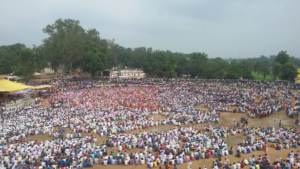

Time Limit On Stay Orders
In a 2018 judgment with far-reaching repercussions for litigants and lawyers, a three-judge Bench of the Supreme Court in Asian Resurfacing of Road Agency Private Limited v Central Bureau of Investigation (2018 SCC Online 310) has restricted the duration of stays in both criminal as well as civil trials to six months. A two-judge bench had referred the following questions to a three-judge bench:
(i) The scope of Section 19(3)(c) of the Prevention of Corruption Act, 1988 which restricts the granting of stays, and
(ii) whether an order on charge in trials for Prevention of Corruption Act offences can be challenged in revision proceedings before a High Court under Section 397 Cr.P.C.
The Court observed that “To give effect to the legislative policy and the mandate of Article 21 for speedy justice in criminal cases, if stay is granted, matter should be taken on the day-to-day basis and concluded within two-three months. Where the matter remains pending for longer period, the order of stay will stand vacated on expiry of six months, unless extension is granted by a speaking order showing extraordinary situation where continuing stay was to be preferred to the final disposal of trial by the trial Court. This timeline is being fixed in view of the fact that such trials are expected to be concluded normally in one to two years.”
The Supreme Court while deciding these questions directed that after six months, stay orders granted by the High Court can only be extended by a speaking order. Further, such order for extension must only be granted in exceptional circumstances wherein the extension of stay order is warranted more than expeditious final disposal of the trial.
The judgment has been hailed as a much-needed panacea to the problem of judicial delay. However, to assess that claim it is necessary to examine how much judicial pendency is attributable to stay orders. Unfortunately, data on the impact of stay orders on judicial delay is scant. A 2016 study by the Law Ministry in Madhya Pradesh, Rajasthan, Gujarat and Odisha found that stays on proceedings ordered by High Courts and the Supreme Court delay trial by up to 6.5 years. The study concluded that given that the average life of a case is 10-15 years, in effect, stay orders are extending the life of a case by 50%. The Economic Survey 2018 also remarked on the trend of rising pendency stemming from the injunction of cases by Courts. In the Delhi High Court in intellectual property rights (IPR) cases, injunctions have led to about 60 percent of cases being stayed, whose average pendency is 4.3 years. The Economic Survey also pointed out that projects worth Rs 52,000 crores across six infrastructure ministries have been stalled by stay orders. The National Judicial Data Grid lists stay orders as one of the reasons for pendency but most states have not collected this data. Data from 10 states reveals that in 15.61% of cases (civil and criminal) stay orders are the reason for pendency..
The data though sparse indicates a routinisation of the practice of granting stay orders. From the perspective, the Supreme Court judgment is welcome as a step in the right direction. It will discourage lawyers from using stay orders as a tactic to delay trials. It is too early to assess how much this will influence delays. It will be interesting to see how far the Supreme Court judgment will be enforced by the High Courts. The Karnataka High Court has already created an exception by stating that the six month restriction does not apply to execution proceedings (Order dated January 1, 2019 in W.P.Nos.100648-100649/2019). The Supreme Court’s observations could be treated as non-binding since the main issue to be decided by the Court was related to section 19(3) of Prevention of Corruption Act.
The views expressed in this article are solely those of the author’s and they do not represent the views of DAKSH.

Leah Verghese
RECENT ARTICLES


POLITICAL MANIFESTOS AND JUDICIAL REFORMS

Challenges in NCLT Filing Procedures: Advocates’ Perspectives

Beyond Revenue – Reimagining Court Fee As A Policy Tool For Judicial Administration

-
Rule of Law ProjectRule of Law Project
-
Access to Justice SurveyAccess to Justice Survey
-
BlogBlog
-
Contact UsContact Us
-
Statistics and ReportsStatistics and Reports
© 2021 DAKSH India. All rights reserved
Powered by Oy Media Solutions
Designed by GGWP Design